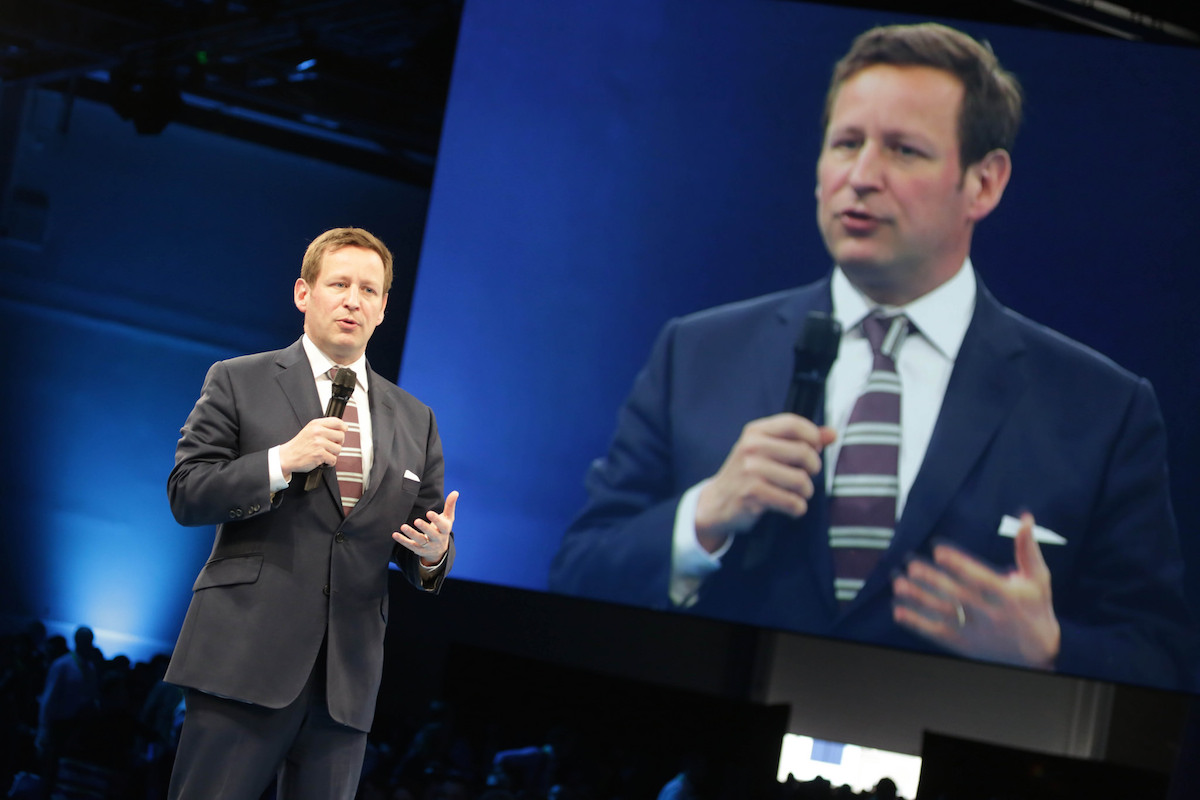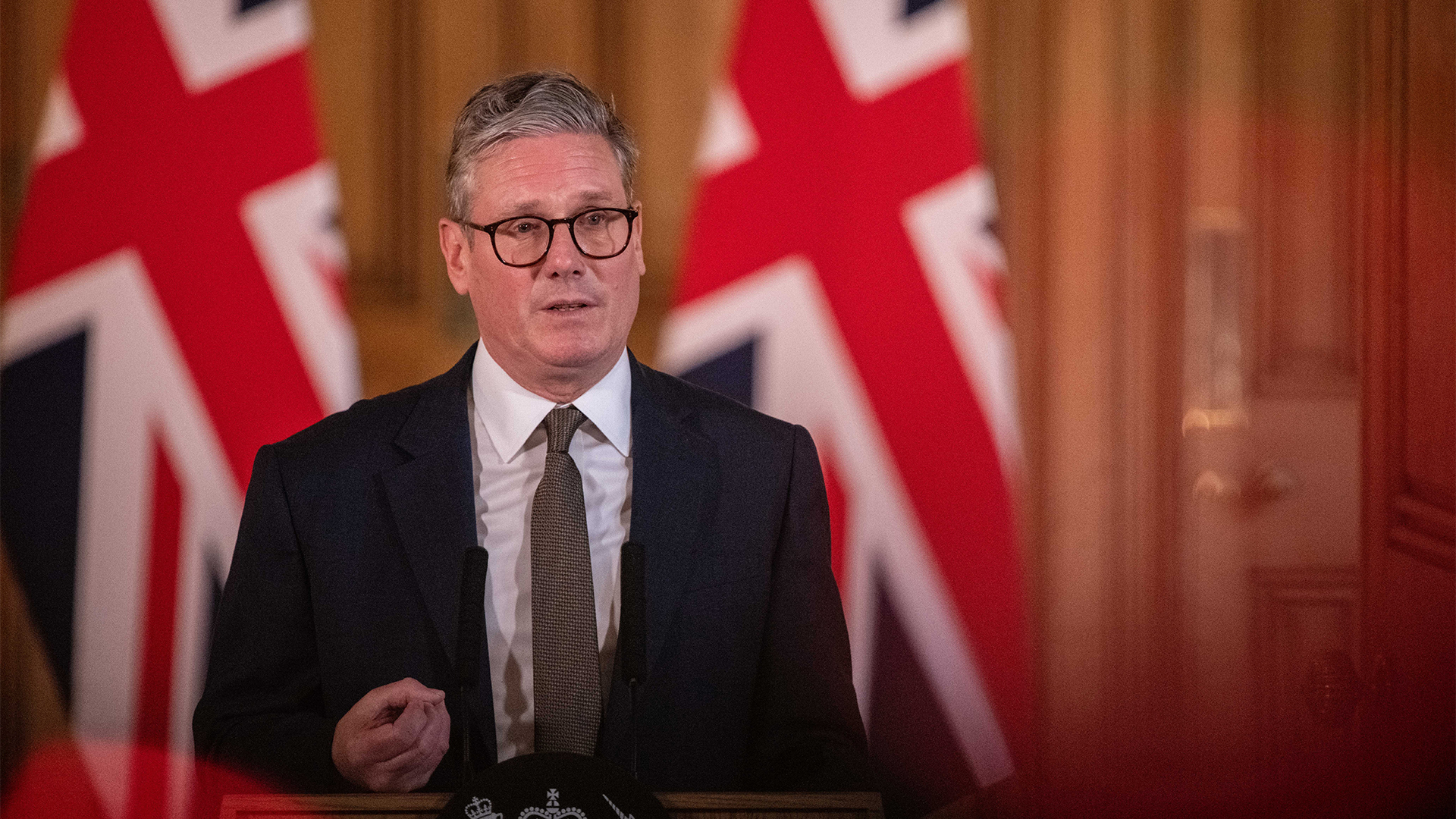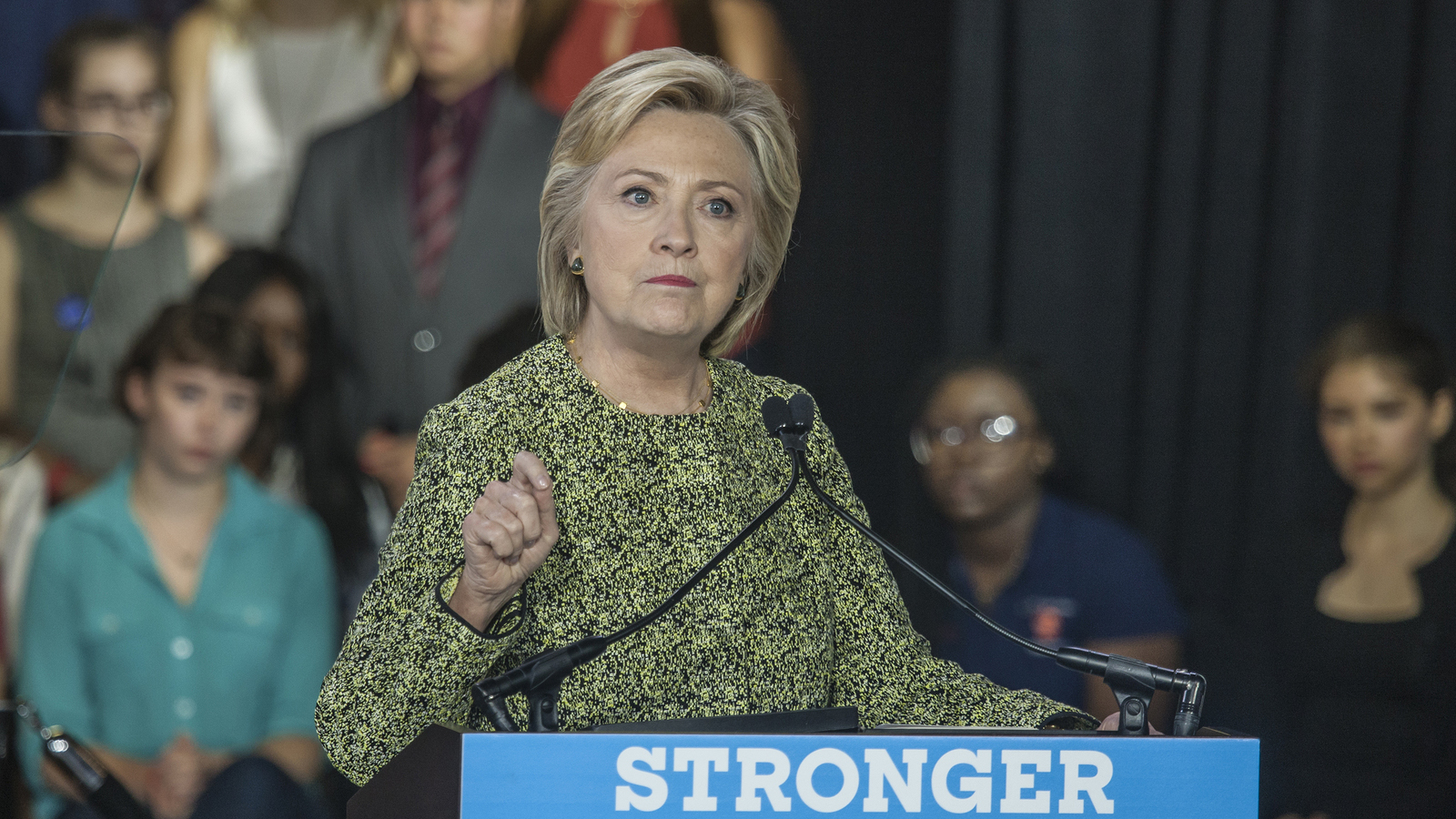Are we really better off as part of the EU?
Ed Vaizey certainly thinks you are if you’re a start up or innovator…


Sign up today and you will receive a free copy of our Future Focus 2025 report - the leading guidance on AI, cybersecurity and other IT challenges as per 700+ senior executives
You are now subscribed
Your newsletter sign-up was successful
The UK is a hotbed of digital innovation and plays home to a vibrant start-up scene. However, continued success in this area could be at jeopardy if we vote to leave the EU on 23rd June.
So claims digital minister Ed Vaizey MP, who reiterated his position on remaining part of the wider union during a press Q&A at Salesforce's World Tour London event this morning at the Excel conference centre.
"There are lots of different factors that make the UK successful in this space," he told assembled journalists and analysts.
"Being part of the EU is a good thing for the UK. [We have] digital companies based in the UK and attract a lot of European start-ups, and the companies based here can draw on a great skills pool throughout the whole of Europe."
While Vaizey did reference EU membership again during a public session (asking for a show of hands and referring to a limited display as an overwhelming majority," he preferred to spend the rest of his time talking about how great the UK is generally in terms of tech and tech innovation. In particular, he referred to how vibrant the market is not just to create a business, but to then grow that business and products and services.
"One thing we do is talk about tech a lot. But I think it's important not to underestimate how important it is for a government any government to show a lead and an interest in this sector because it does tend to attract companies. Investment companies want to know what's going on here with government ministers talking about tech and supporting tech so [they say] let's go over and have a look,'" Vaizey said.
"We're building a digital infrastructure and making sure we're digitally enabled, with 4G and broadband."
Sign up today and you will receive a free copy of our Future Focus 2025 report - the leading guidance on AI, cybersecurity and other IT challenges as per 700+ senior executives
On the other hand, Vaizey did highlight that not everything is going in the UK's favour and rightly acknowledged some of the key challenges facing the tech sector in particular.
"Skills [is an issue]. Every country is facing a challenge [here], but I think we have a great skills base in the UK and we're not complacent. We're constantly looking at how we reform and upgrade the skills element. We also have a good investment climate and a generally good business climate. I think the UK is a great place to start any kind of business, but I do think we have a good tax environment, particularly for start-ups," he added.
"The UK government should acknowledge the role of the British consumer. We are great adopters both at business levels and consumer levels of adopting new technologies Again, that drives a lot of tech innovation."
The minister also pledged continued governmental support for start-ups who come to our shores to do business.
"Start-ups in the tech economy do get quite significant support from the government through Tech City, which is a very good organisation. Originally, when we set it up in 2010, I was a bit sceptical of what it could do. But I have obviously become a convert," he admitted.
"The tech community is very important to our economy. It provides a very porous relationship with government the tech companies can raise their concerns and have a proper on-going dialogue with government about issues, we can bring in potential reform, but also championing tech companies, helping them to scale up and encouraging them to grow in the UK they are all factors where Tech City plays a big role."
While the minister was clearly proud of the UK's rich heritage and forward-looking ambitions relating to innovation and technological evolution, a question by a fellow journalist prompted him to be on the defensive.
The government's universal service obligation is to ensure the minimum standard for broadband speed in rural areas is a minimum of 10Mbps and during the press Q&A, he was asked whether this was really that great a thing to be celebrating.
"We're talking here about the very hard to reach areas the last five per cent of the UK. [Some] 90% of the UK now has access to 24Mbps and, in fact, 50 per cent of the UK has access to ultra-fast broadband. We're doing very well," he said.
"10Mbps is twice as high as the European recommendation and a lot higher than most other countries, many of whom don't have a universal service obligation. So I don't think that is a damp squib.' We have said we will keep it under review. We want to track superfast speeds across the UK. We don't want to leave people on 10Mbps in a few years time, say when 100Mbps might be the norm."
Vaizey continued: "But if you don't get excited about 10Mbps, you should get excited about our key planning reforms in digital. I know a lot of people down the Dog and Duck' will be talking about things like taller masts."
Maggie has been a journalist since 1999, starting her career as an editorial assistant on then-weekly magazine Computing, before working her way up to senior reporter level. In 2006, just weeks before ITPro was launched, Maggie joined Dennis Publishing as a reporter. Having worked her way up to editor of ITPro, she was appointed group editor of CloudPro and ITPro in April 2012. She became the editorial director and took responsibility for ChannelPro, in 2016.
Her areas of particular interest, aside from cloud, include management and C-level issues, the business value of technology, green and environmental issues and careers to name but a few.
-
 ITPro Best of Show NAB 2026 awards now open for entries
ITPro Best of Show NAB 2026 awards now open for entriesThe awards are a fantastic opportunity for companies to stand out at one of the industry's most attended shows
-
 Mistral CEO Arthur Mensch thinks 50% of SaaS solutions could be supplanted by AI
Mistral CEO Arthur Mensch thinks 50% of SaaS solutions could be supplanted by AINews Mensch’s comments come amidst rising concerns about the impact of AI on traditional software
-
 UK regions invited to apply for ‘AI Growth Zone’ status
UK regions invited to apply for ‘AI Growth Zone’ statusNews The UK government has opened up bidding for regions hoping to secure 'AI growth zone' status.
-
 “Botched government procurement” leads to £24 million Atos settlement
“Botched government procurement” leads to £24 million Atos settlementNews Labour has accused the Conservative government of using taxpayers’ money to pay for their own mistakes
-
 UK government to run Starlink trials in Snowdonia, Lake District
UK government to run Starlink trials in Snowdonia, Lake DistrictNews The government has indicated low-Earth orbit satellites could be key to expanding connectivity to UK businesses
-
 Government holds talks with data centre operators over energy blackout threat
Government holds talks with data centre operators over energy blackout threatNews One data centre operator has been preparing to switch over to diesel power in the event of a national blackout
-
 HPE inks $2 billion high-performance computing deal with the NSA
HPE inks $2 billion high-performance computing deal with the NSANews HPE will provide scalable on-premises computing to the NSA using Greenlake
-
 White House launches official investigation into use of personal email accounts
White House launches official investigation into use of personal email accountsNews Senate Intelligence Committee rebukes Kushner for omitting private account
-
 UK to re-invest £645m into 'superfast' broadband rollout
UK to re-invest £645m into 'superfast' broadband rolloutNews £465 million was recovered from contract clauses with BT
-
 UK government offers £16m 5G research fund for 2018 trials
UK government offers £16m 5G research fund for 2018 trialsNews Three universities will share the cash to help develop test networks
